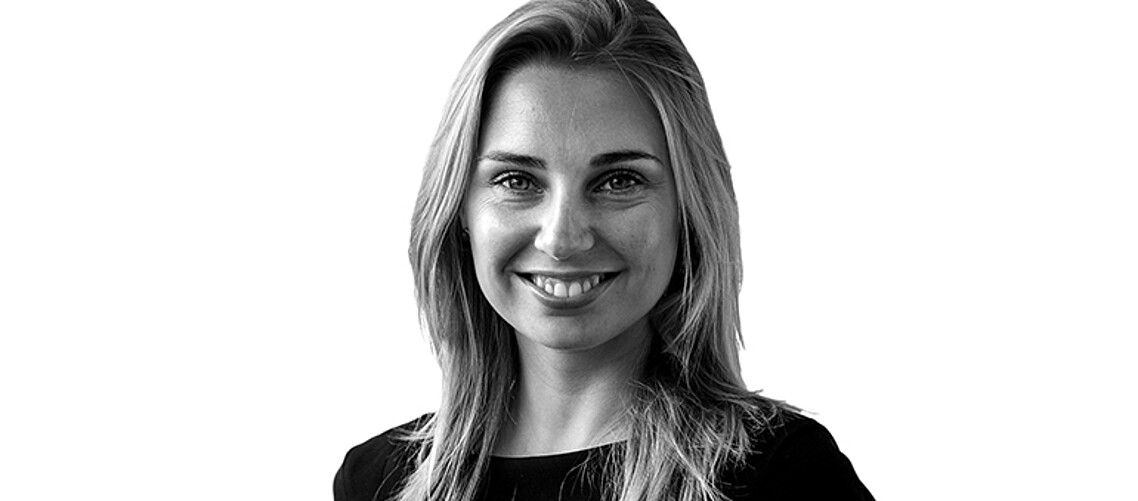Tiley, a 2010 graduate of RSM with a Master degree in Strategic Management, now serves as the United Nations world food programme partnership co-ordinator for DSM, the Dutch multinational life and materials sciences company.
Her work is somewhat similar to that of business development executives – hammering out complex deals with multiple players, then making sure that everyone delivers on their promises. The difference is that, unlike a traditional business development officer, profit is only one of Tiley’s goals.
‘I think that what’s really interesting about public-private partnerships is that you're trying to create value for a much broader group of stakeholders, which makes it a lot more challenging but also more interesting, because you have to weigh and balance so many different factors,’ says Tiley, a winner of the RSM Distinguished Alumni Award.
Her most recent assignment: bringing more than 70 Dutch public, private and governmental organisations together to commit to the United Nation’s post-2015 sustainable development goals, a document she believes will serve as the blueprint for international development over the next two decades.
Helping society
Since she first became interested in public-private partnerships as a student at RSM, Tiley says she has seen growing recognition that the private sector can and should play a role in helping to resolve societal challenges. ‘It’s becoming more and more recognised and accepted that the private sector has a role to play in development issues or in sustainability issues,’ she says.
Although some are sceptical about the involvement of business in things like the UN’s sustainable development charter, she says, there is more recognition now that business brings special qualities to the table that can help non-governmental organisations meet their challenges faster. ‘I think in business, you have a great capacity for innovation; you have, sometimes, greater financial resources; you have the ability to move much more swiftly,’ she says.
In the past five years the Canadian, from Ottawa, says she has learned a number of lessons about how to make such collaborations work. ‘The closer you get to your own backyard, the better the collaboration is. Gone are the days of pure philanthropy where a company simply handed over a cheque to a worthy cause. That really doesn’t resonate with what they do, what their expertise is, what their added value is, what their employees are interested in,’ she says. ‘Stay close to what you know.’
The early discussions in a partnership are very important, she believes. ‘I think what’s really important from the start is that you have a very open dialogue, because you really need to build the trust to be able to sustain that relationship,’ Tiley says. In her experience, most partnerships succeed or fail because particular individuals have built strong personal relationships between the companies.
Partnership broker
Although knowledge about such partnerships is still limited compared to academic understanding about for-profit partnerships, she says a number of organisations, including the United Nations, now produce case studies and academic research.
Tiley says that her role is also being increasingly recognised as a distinct profession. People in her position even have a professional organisation now, the Partnership Brokers Association, an international body for people who develop and manage partnerships between business, government and civil society groups.
Blended careers such as hers are becoming increasingly common, she says. ‘I think that young people have very broad interests these days. I think it’s becoming more accepted that you can have a career that isn’t just in one sector – not just in the public service or not just in a corporation,’ she says.
In addition to Tiley’s day job working on the UN initiative, she also volunteers in the World Economic Forum’s Global Shapers programme, an international network of young private and public sector leaders who collaborate to tackle social challenges head-on. ‘Collaboratively we work on different projects to improve the state of the world,’ she says.
Some of the Global Shapers have gone on to start some very interesting social enterprises, she says. One she likes in particular is a company called True Price, which measures the cost of a product’s externalities, such as pollution. ‘These are factors that are not considered when coming up with the price of a product but are ultimately borne by the society anyway,’ she says.
In the next few years, Tiley sees more organisations combining the characteristics of for-profit and not-for-profit organisations. ‘Perhaps one day we'll see spin-offs of corporations and NGOs creating independent entities, for example. That could be quite interesting.’
More information about the United Nations world food programme can be found at www.wfp.org
